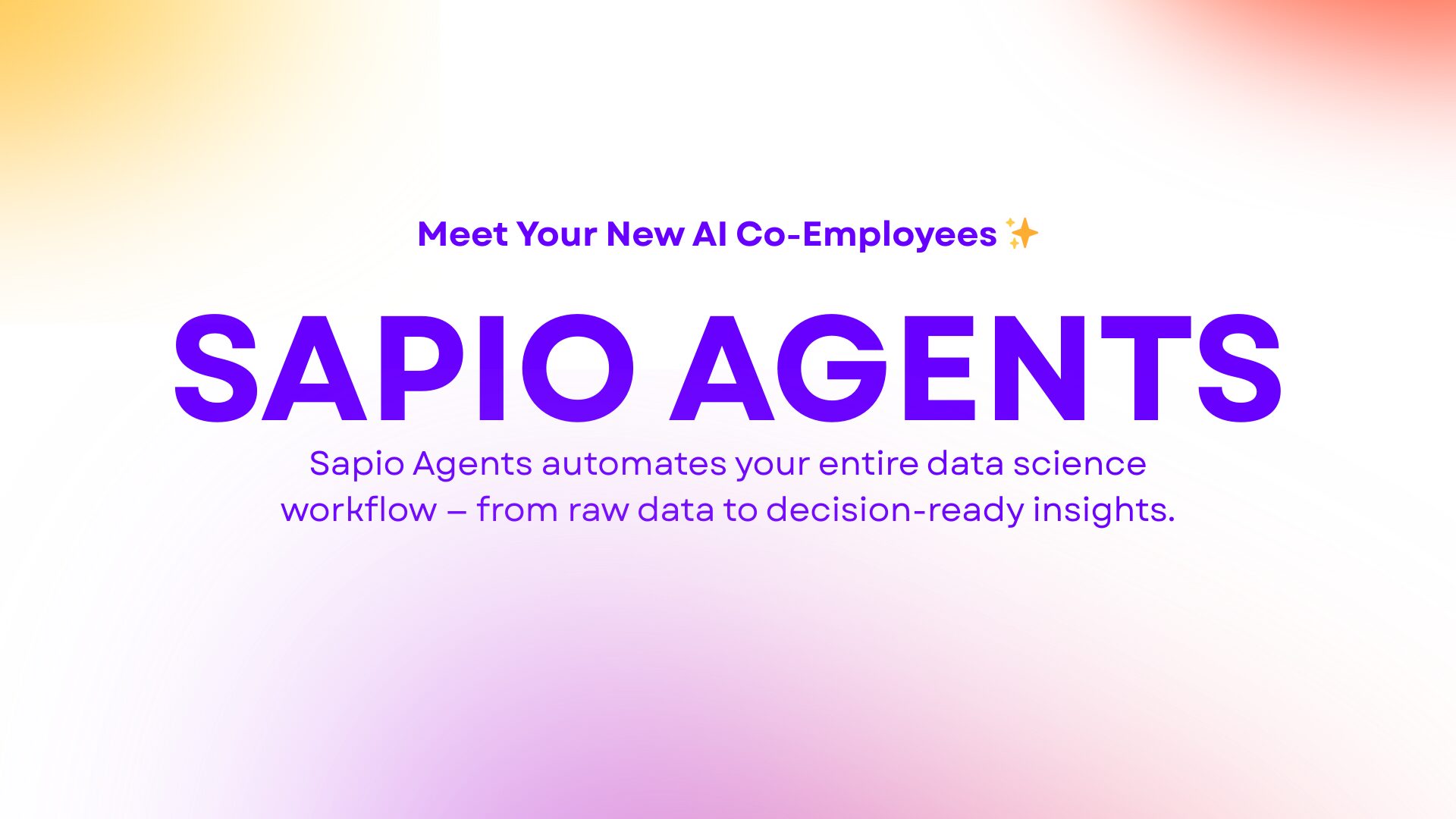Table of Contents
Overview
Sapio Agents represents an emerging agentic AI platform developed by a team with connections to Carnegie Mellon University and the Pittsburgh Supercomputing Center. The platform positions itself as a comprehensive data co-employee system designed to handle tasks across the data lifecycle, from engineering to analysis. While the company describes its approach as “diagonal agentic AI,” this appears to be proprietary terminology rather than an established academic framework.
Key Features
- Full-stack data capabilities: Sapio Agents provides end-to-end data processing capabilities, spanning data engineering, science, and analytics workflows.
- Agentic AI architecture: The platform employs agentic AI principles, enabling autonomous task execution and decision-making within data workflows.
- Enterprise integration: Designed to work with existing enterprise data infrastructure and tools.
- Research foundation: Built by a team with academic and high-performance computing backgrounds from CMU and PSC.
- Autonomous workflow management: Capable of handling complex data operations with minimal human intervention.
How It Works
Sapio Agents operates on agentic AI principles, enabling autonomous task execution within data workflows. The system can interpret requirements, access multiple data sources, perform transformations, and generate insights. The platform leverages advanced AI models to understand context and adapt to changing requirements, though specific technical details about the underlying architecture remain proprietary.
Use Cases
- Enterprise data analysis and reporting: Automated generation of complex analytical reports and insights.
- Data pipeline automation: Streamlined management of ETL processes and data quality assurance.
- Business intelligence: Dynamic dashboard creation and real-time business insights.
- Consulting and analytics: Enhanced analytical capabilities for professional services teams.
Pros \& Cons
Advantages
- Comprehensive data coverage: Handles multiple aspects of the data lifecycle within a single platform.
- Autonomous capabilities: Reduces manual intervention through agentic AI functionality.
- Academic foundation: Built on research and expertise from respected institutions.
Disadvantages
- Early-stage platform: Limited public information about real-world performance and adoption.
- Proprietary approach: Uses terminology and concepts not widely established in academic literature.
- Unclear pricing: No transparent pricing information available for evaluation.
How Does It Compare?
- Palantir Foundry: Palantir’s platform has evolved significantly in 2025 with advanced AI integration through their Artificial Intelligence Platform (AIP), offering LLM capabilities and more autonomous features. Both platforms target enterprise data integration, but Palantir has extensive proven deployment at scale across government and enterprise sectors.
- DataRobot: Now positioned as an “agentic workforce platform” and recognized as a leader in Gartner’s 2025 Magic Quadrant for Data Science and Machine Learning platforms. DataRobot’s syftr framework specifically addresses agentic workflows, making it a more direct competitor with established enterprise adoption and clear performance metrics.
- Hex: Has evolved into an AI-powered collaborative analytics platform with significant funding (\$70M Series C in 2025) and advanced AI features through “Hex Magic.” While Hex focuses more on collaborative analytics interfaces, it now includes AI-powered workflow automation that overlaps with Sapio’s positioning.
Final Thoughts
Sapio Agents represents an interesting entry in the evolving agentic AI space for data engineering and science. The platform’s connection to Carnegie Mellon University and Pittsburgh Supercomputing Center provides a solid research foundation. However, as an early-stage platform, potential users should carefully evaluate its capabilities against more established competitors that have evolved to include similar agentic AI features. The lack of transparent pricing, public case studies, and performance benchmarks makes direct comparison challenging. Organizations considering Sapio Agents should request detailed demos and proof-of-concept implementations to assess its suitability for their specific data engineering and analytics requirements.
